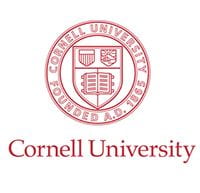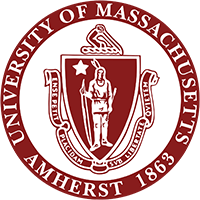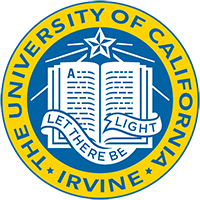 Ester Angert Ester Angert
Cornell University |
 Brett Baker Brett Baker
University of Texas at Austin Dr. Baker and his research team harness metagenomics to obtain individual genomes from complex microbial communities such as marine sediments. He also uses a variety of approaches to measure the physiological activity of these new lineages to understand their ecology.Recently it has been shown that microbes belonging to the Asgard archaea are phylogenetically related to eukaryotes.This finding has received considerable attention in the biology community, as it reshapes our understanding of the tree of life. These fascinating organisms are widespread in sediments, and he has obtained genomes belonging to newly described phyla; Thorarchaeota, Odinarchaeota, and Heimdallarchaeota. These related lineages have been named the Asgard superphylum. He has been describing the evolutionary roles of these archaea in the origin of complex cellular life, eukaryotes.
|
 Andreas Baümler Andreas Baümler
University of California, Davis Dr. Baumler pioneered studies on the physiology of enteric pathogens in the natural context of a host-associated microbial community. This work identified epithelial energy metabolism as host control mechanism critical for maintaining homeostasis.Gut dysbiosis resulting from disruption of this host control mechanism underlies a broad range of non-communicable diseases. |
 Matthias Boll Matthias Boll
University of Freiburg |
 Eric Boyd Eric Boyd
Montana State University Eric Boyd is an Associate Professor in the Department of Microbiology and Immunology at Montana State University. After receiving a BS in Biology at Iowa State University in Ames he moved to Bozeman, Montana where his doctoral work focused on the geomicrobiology of hydrothermal environments. As a NASA Astrobiology Institute postdoctoral fellow, Boyd expanded his work to include subglacial and hypersaline environments to investigate the interplay between geochemical variation and the diversification of microbial life and the metabolic processes that support it. During this time, Boyd also developed new approaches to study metalloprotein evolution that specifically focused on the emergence of accessory proteins involved in active site metallocluster biosynthesis.His current research focuses on how products of water rock interactions shape the distribution of life in subsurface environments and on the bioconversion of minerals into catalysts, with a specific focus on the biosynthesis of the active sites of hydrogenases and nitrogenases. Our work is conducted both in laboratory and field settings and often times involves extremophiles. His current field sites include the subsurface ophiolites in Oman, hot springs in Yellowstone and Iceland, subglacial environments in the Canadian Rockies and Iceland, and the hypersaline waters of Great Salt Lake. |
 Brendan Burns Brendan Burns
The University of New South WalesSince returning from a post-doc in Germany, Brendan has led a research group at The University of New South Wales (Sydney, Australia) on modern microbial mats and stromatolites – complex geomicrobial communities that are analogues of the very earliest evidence of life on Earth. Using these ancient life forms as blueprints, Brendan has also consulted with NASA to better focus efforts on the search for signals that may help in the detection of life on other planets. His interests also include microrganisms that inhabit extreme environments, and more specifically the Asgard archaea, organisms potentially key in the origin of the eukaryotic cell.His work has demonstrated the importance of developing an integrated approach for studying the functional diversity of biological systems, which may be applied to other evolutionary important environments around the world. In addition to high-impact publications, Brendan’s research has been recognized with the award of the Eureka Prize for Interdisciplinary Scientific Research, Australia’s premier science awards and an extremely prestigious honor.Other awards include Kanagawa Museum of Natural History Award, Japan Society for the Promotion of Science Invitation Fellowship, and an Australia Institute of Political Science Tall Poppy Award.Brendan has also demonstrated a real commitment to communicating science to the general public with numerous radio and print articles, involvement in film projects (a 3D IMAX movie directed by James Cameron), and appearances in court as an expert witness. |
 Jon Clardy Jon Clardy
Harvard UniversityJon Clardy grew up in Virginia, obtained a BS degree from Yale University, and a PhD from Harvard University – both in chemistry. He then joined Iowa State University’s Chemistry Department and later moved Cornell University where he was also Chair of the Department of Chemistry and Chemical Biology and a Senior Associate Dean in the College of Arts and Sciences.He then moved to Harvard Medical School where he is the Hsien Wu & Daisy Yen Wu Professor of Biological Chemistry and Molecular Pharmacology.His research has focused on naturally occurring biologically active small molecules, their macromolecular targets, and their roles in biology and medicine. His current interests involve the molecular underpinnings of complex symbiotic systems involving both prokaryotes and eukaryotes, bacterial influences on animal and plant development, bacterial communications, and most recently the ways in which the inhabitants of the human gut microbiome influence human health and disease. He currently lectures in graduate courses and teaches a Freshman Seminar entitled Psychoactive Molecules from Babylon to Breaking Bad to Harvard undergraduates. |
 John Coates John Coates
University of California, Berkeley |
 Jorge Escalante-Semerena Jorge Escalante-Semerena
University of GeorgiaDr. Escalante-Semerena’s research focuses on the analysis of metabolic capabilities of prokaryotic cells, with emphasis in the assembly and use of coenzyme B12, reversible control of metabolic stress by post-transtational modifications, and studies of the metabolism of short-chain fatty acids.
- 1976 B.S. in biochemistry from The National University of Mexico, Mexico City
- 1979 M.Sc. in microbiology from The University of Illinois, Urbana-Champaign
- 1983 Ph.D. in microbiology from The University of Illinois, Urbana-Champaign
- 1983-1984 Postdoctoral work at The University of Illinois, Urbana-Champaign
- 1984-1988 Postdoctoral work in bacterial genetics at The University of Utah, Salt Lake City
- 1988-2012 Professor in the Department of Bacteriology of The University of Wisconsin-Madison
- 2001-2006 Ira L. Balwin Professor of Bacteriology, UW-Madison
|
 Jeffrey Gralnick Jeffrey Gralnick
University of Minnesota Twin CitiesJeffrey Gralnick earned a PhD in Bacteriology from the University of Wisconsin- Madison studying microbial physiology and genetics with Diana Downs. He joined Dianne Newman’s lab at the California Institute of Technology in 2003 to study bacteria that respire rust and generate electrical current in microbial fuel cells.In 2005 he started his research group focusing on synthetic biology and microbial physiology of metal reducing and oxidizing bacteria at the University of Minnesota where he is a Professor of Plant and Microbial Biology and Director of the Microbial and Plant Genomics Institute. |
 Trinity Hamilton Trinity Hamilton
University of Minnesota Twin CitiesDr. Hamilton’s Lab studies the functions and interactions of microorganisms. The Hamilton Laboratory is interested in questions across geologic time including the physiology of the first phototrophs and microbial primary productivity in the Proterozoic oceans. We use traditional microbiology and molecular techniques as well as -omics approaches. |
 Ming Hammond Ming Hammond
University of Utah |
 Ricardo Jasso-Chavez Ricardo Jasso-Chavez
Instituto Nacional de Cardiología |
 Joseph Krzycki Joseph Krzycki
Ohio State UniversityDr. Krzycki and his laboratory are interested in the biochemistry of biological methane production by methanogenic Archaea. People are drawn to research on methanogens for a number of reasons. These microbes inhabit anaerobic environments like freshwater and marine sediments or municipal waste digesters. In these environments, methane formation is a critical final step in the degradation of organic matter.Methanogenesis produces cellular energy even while producing a human energy source. Methanogens are the charter members of the Archaea, a Domain of life evolutionarily separate from Bacteria or Eucarya. Befitting this unique evolutionary status, methanogens possess an unusual biochemistry and molecular biology, and have evolved distinctive cofactors and enzymes to form methane.In recent years his laboratory has shown that some methanogens have even changed their genetic code to suit the needs of methanogenesis. To use methylamines to make methane, they synthesize proteins possessing an unusual amino acid call pyrrolysine. Pyrrolysine is inserted during translation, making it the 22ndamino acid found to have entered the genetic code. While they first found pyrrolysine in methanogens, evidence for pyrrolysine has now been found in nine different genera of Bacteria and Archaea, including a human gut bacterium. |
 Frank Löffler Frank Löffler
University of TennesseeFrank Loeffler received a B.S. degree in Biology and an M.S. degree in microbiology from the University of Hohenheim in Stuttgart, Germany. He performed his doctoral studies in biotechnology at the Technical University Hamburg-Harburg and received a Ph.D. degree (summa cum laude) in 1994. As an Alexander von Humboldt fellow, he conducted research in the NSF Center for Microbial Ecology at Michigan State University, before joining the Civil & Environmental Engineering faculty at the Georgia Institute of Technology in Atlanta.Since 2010, Dr. Loeffler serves as Governor’s Chair Professor at the University of Tennessee and Oak Ridge National Laboratory, and he directs the university’s Center for Environmental Biotechnology since 2016. The Loeffler laboratory explores the physiology, diversity, distribution, and ecology of microbes that control the turnover of nutrients and pollutants, with the ultimate goal to harness, manipulate, and predict their functions in both natural and managed habitats. |
 Derek Lovely Derek Lovely
University of Massachusetts-Amherst |
 Shonna McBride Shonna McBride
Emory University School of MedicineDr. Shonna McBride is currently an Associate Professor of Microbiology and Immunology at the Emory University School of Medicine in Atlanta, Georgia. A native of Louisiana, Dr. McBride’s scientific path began at McNeese State University, where she earned a Bachelor of Science degree in Biological Sciences in 1999.During her time at MSU, she engaged in molecular biology research focused on understanding and conserving wetland plants.Building on her research experiences at McNeese, Shonna pursued graduate studies in bacterial genetics at the University of Texas Health Science Center at San Antonio, where she earned a Ph.D. in 2005. After receiving her Ph.D., Dr. McBride trained as a postdoctoral fellow in the field of bacterial pathogenesis at the Schepens Eye Research Institute of Harvard Medical School from 2005 to 2008 and at the Tufts University School of Medicine from 2008 to 2012.Dr. McBride joined the Emory University faculty in 2012, where her research focuses on identifying the molecular mechanisms of the gastrointestinal pathogen Clostridioides difficile (C. diff) that allow it to live within the host.Her work has identified novel mechanisms of antimicrobial resistance, sporulation, and toxin production in this important pathogen, for which she has received research funding from the National Institutes of Health (NIH). Her research has been published in many scientific journals, including mBio, PLoS Pathogens, Molecular Microbiology, Environmental Microbiology, Journal of Bacteriology, Microbiology, Infection and Immunity, and the Journal of the American Chemical Society (JACS). |
 Florin Musat Florin Musat
Max-Planck Institute for Marine Microbiology |
 Tullis Onstott Tullis Onstott
Princeton University |
 Markus Ribbe Markus Ribbe
University of California, Irvine |
 Seigo Shima Seigo Shima
Max Planck Institute for Terrestrial MicrobiologyDr. Shima’s research focuses on the biochemistry of the enzymes involved in methanogenesis. His group is presently working on three projects: (i)analysis of the structure and the catalytic mechanism of [Fe]-hydrogenase (Hmd), (ii) crystal structure analysis of tetrahydromethanopterin (H4MPT)- and F420-dependent enzymes, and (iii) characterization of enzymes involved in anaerobic oxidation of methane.
- Seigo Shima (born 1960)
- Master (Agriculture), Osaka Prefectural University, 1985
- Researcher at Central Research Institute of Electric Power Industry, Chiba, Japan, 1985-1994
- Contract Researcher at University of Tokyo, 1986-1988
- Ph.D. (Agriculture), University of Tokyo, 1991
- Alexander-von-Humboldt Research Fellow, University of Marburg, 1993-1995
- Group leader at the Department of Biochemistry of the MPI Marburg, 1995-2014
- Guest Professor of Hokkaido University, since 04/2012
- Department-independent research group leader, since 11/2014
|
 Kevin Solomon Kevin Solomon
Purdue UniversityDr. Kevin Solomon is an Assistant Professor of Agricultural and Biological Engineering at Purdue University. His work focuses on the development of non-model microbial platforms and tools to engineer them for the production of energy, materials, and medicines. He holds a bachelor’s degree in Chemical Engineering and Bioengineering from McMaster University (Canada) and a PhD in Chemical Engineering from MIT.As part of his graduate work, Dr. Solomon developed new tools to increase biomanufacturing efficiency. As a postdoctoral fellow at UC Santa Barbara, he applied the latest advances in sequencing technologies to interrogate how microbes interact with their environment and identify new tools for synthetic biology. Using these techniques, he spearheaded efforts to molecularly characterize in depth a class of elusive microbes with tremendous potential for biofuel production, agriculture, and drug discovery.He has received several academic, teaching, and service awards including the US Department of Energy Early Career Award, an Outstanding Faculty Award from Purdue Residences, a Genewiz Empower New Faculty Award, a Lemelson Presidential Fellowship, an NSERC Julie Payette Award, and a Science Education Leadership Award from SynBERC. Dr. Solomon’s work is work is supported by the NSF, DOE, private trusts and industry. |
 Rolf Thauer Rolf Thauer
Max Planck Institute for Terrestrial MicrobiologyProfessor Thauer is a biochemist interested in the ecology and physiology of anaerobic bacteria and archaea. After his retirement 2008 as Professor at the Faculty of Biology of the Philipps-University Marburg and as Director of the Max Planck Institute for Terrestrial Microbiology in Marburg, Germany, he continued experimental work in the Max Planck Institute until end of 2014.Since then he has focused on theoretical studies on how strict anaerobes conserve energy. He received the Lwoff Award of the Federation European Microbiology Societies (FEMS) in 2015, and before that numerous other honors including honorary doctorates from ETH Zurich, University of Waterloo and the University of Freiburg. Since 1984 he is member of the German National Academy of Science Leopoldina and since 2018 member of the American Philosophical Society.Dr. Thauer’s publication list comprises more than 400 titles, of which by the end of 2019 four had been cited more than 1000 times and almost hundred more than 100 times. Until end of 2019 the over all number of citations was almost 40,000. |
 Dirk Wagner Dirk Wagner
GFZ German Research Centre for GeosciencesDr. Wagner is Head of the Geomicrobiology Section at the German Research Centre for Geosciences (GFZ) and Professor of Geomicrobiology and Geobiology at the University of Potsdam. He studied biology with a focus on microbiology, genetics and soil science at the University of Hamburg. He received his doctorate in 1998 from the Institute of Soil Science at the University of Hamburg in the field of “Soil Microbiology”.After a two-year postdoctoral phase, he moved to the Alfred Wegener Institute, Helmholtz Centre for Polar and Marine Research in Potsdam in 2000, where he established the working group “Geomicrobiology in Periglacial Regions”. In 2007 he habilitated in “Microbial Ecology” at the Institute of Biochemistry and Biology at the University of Potsdam. Five years later he moved to the GFZ and accepted the call to his current professorship at the Institute for Geosciences at the University of Potsdam.Dr. Wagner is interested in the development and distribution of microbial life in terrestrial extreme habitats such as permafrost, deserts and the deep underground (deep biosphere). He investigates the dynamics and processes of microbial communities and the complex geological-biological interactions associated with them. In addition, he regularly isolates and describes new microorganisms, which are tested in simulation experiments for their survival under extreme conditions such as those prevailing on Mars. In his teaching, he deals, among other things, with the adaptation of microorganisms to extreme environmental conditions in an astrobiological context. |
 William Whitman William Whitman
University of GeorgiaProkaryotes are the dominant form of life on earth, representing an enormous biomass and number of individual cells. They are so diverse that it is misleading to give them a common name, and they are really just what are left after the familiar plants, animals, fungi and protists are named. They are the engines that make the biosphere and the ancestors to all modern life. Their evolution established the central plan for the living cell.Research in the Whitman laboratory uses an integrated approach to understand the nature of free-living prokaryotes. Dr. Whitman believes that studying the ecology, systematics, physiology, biochemistry, and molecular biology together provide the best understanding for these microorganisms. Likewise, the history or evolution of an organism provides insight into the modern organism.Dr. Whitman has used these approaches to study the carbon metabolism of the methane-producing archaeon Methanococcus, the sulfur metabolism of the marine alphaproteobacterium Ruegeria, and the impact of agriculture on soil bacterial communities. |
 Sebastian Winter Sebastian Winter
UT Southwestern Medical CenterSebastian Winter received his M.Sc. in Biochemistry from the University of Bayreuth, Germany, in 2006. He then started his Ph.D. thesis research and, under the co-mentorship of Dr. Holger Rüssmann (University of Munich) and Dr. Andreas Bäumler (UC Davis), studied how Salmonella enterica serovar Typhi, the causative agent of typhoid fever, can evade recognition by the innate immune system.In 2010, Sebastian Winter obtained his Ph.D. (Dr. rer. biol. hum.) from the University of Munich, Germany. He then continued his postdoctoral studies in the laboratory of Andreas Bäumler at UC Davis where he investigated alterations of the intestinal microbiota during episodes of inflammation. In 2013, Dr. Winter joined the Microbiology Department at UT Southwestern and was named a UT Southwestern Endowed Scholar. In 2014, he received an ICAAC Young Investigator Award from the American Society for Microbiology.He was named a Research Scholar by the American Cancer Society in 2017. In 2018, Dr. Winter became a BWF Investigator in the Pathogenesis of Infectious Diseases.His independent research group is investigating host-microbe and microbe-microbe interactions in the inflamed gut, with a particular interest in inflammatory bowel disease and infection with enteric pathogens. |
 Ramnik Xavier Ramnik Xavier
Massachusetts General Hospital |